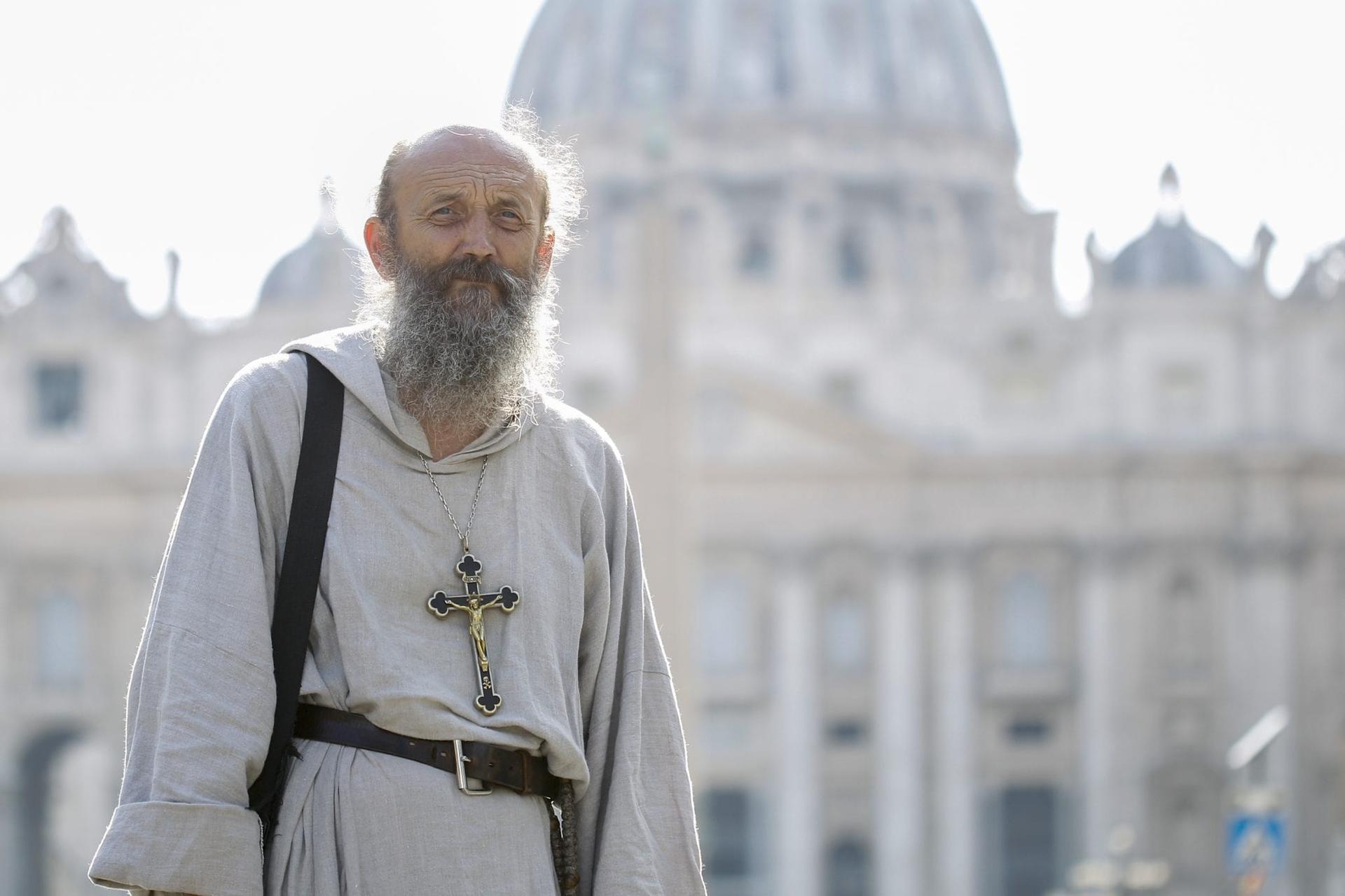ROME — In the late 1990s, Mindaugas Cerniauskas was an active businessman and entrepreneur, busy traveling the world, starting Rotary clubs, founding the first Free Economic Zone in Lithuania and serving as president of the country’s Chamber of Commerce.
He was civilly married and lived with his wife and two children in Vilnius, Lithuania’s capital.
All that changed when Cerniauskas could no longer resist what he described as an interior “fire” in his soul — a burning for religious truth that led him to separate from his family, flee the city and commence a spiritual quest that would lead, 20 years later, to his priestly ordination in Rome and new name: Father Mary Elias.
Elias’s searching, turbulent religious quest is an example of Christian conversion that many experienced in former communist countries in the aftermath of the Soviet Union’s collapse.
Though he had been baptized as a child, Elias had not been raised a Catholic because Soviet law forbade going to Mass. Nevertheless, he dabbled in some Christian devotions while also practicing yoga and collecting New Age literature.
“Everything was mixed,” he said, noting that he followed a disparate assortment of teachings from both Buddha and Jesus, occasionally prayed the rosary and went to confession. Elias even traveled to India in 2002 to meet with Sri Bhagavan, a prominent spiritual teacher and founder of the Oneness Movement.
After fully accepting Catholic teaching in 2003 as the result of what he called a “God-miracle,” Elias began devoting all of his energy to theological learning, fasting and pilgrimage.
“I burned all my esoteric books,” he said, and “left only Jesus, Mary, the Church.”
One of his most significant adventures was a 2,700-mile walking pilgrimage from Lithuania to Jerusalem. Upon arriving at Jerusalem’s Church of the Holy Sepulcher, he vowed to God that he would live out the rest of his life as a hermit.
After returning to Lithuania, Elias started wearing a Carthusian-style habit, leading retreats and traveling to some of Christianity’s holiest sites around the world.
For example, in 2007, he got a special permission to stay at Mt. Athos in Greece, one of the most sacred places in Eastern Orthodoxy and home to several monasteries. Alone one night at the peak of the mountain, he started collecting small white pebbles.
“I was inspired,” Elias recalled, to take the stones back to Lithuania, embed them in silver crosses, and make a pilgrimage to deliver one to each of the major Marian shrines in Latin America.
“I thought, (the Orthodox) have such a strong love for Mary, and the Catholic Church” also has this love, he said. “Especially in Latin America, where in many countries Our Lady is the national patron.”
With only 10 euros (about $14) in his pocket, which he promptly deposited in a church upon arriving in Brazil, Elias began a 77-day tour of Latin America and the Caribbean, depositing his stone-bearing crosses in 20 sanctuaries dedicated to Mary. He relied on the generosity of local monasteries and individuals to fund his transportation.
“I think my vocation is very strongly built in the spirit of pilgrimage,” said Elias, who enshrined his traveling and leading of spiritual retreats into the canonical, eremitical vows he made in 2014. With his bishop’s approval, Elias called his vocation that of a “hermit-missionary.”
“God created me this way,” Elias said. “I like to lead retreats, I like to create music, but I also need solitude.”
The solitude Elias now observes, however, came at the price of a heart-wrenching family dissolution in 1999.
“I am not perfect,” Elias said, recalling his decision to leave his 17-year marriage and teenage children to undertake his search for God. “It was not the right way.”
On the other hand, “If we look at the fruits and conversion of my former wife and our relationship now, she’s praying for me, for my vocation,” Elias said. His now-grown children even brought him vestments for his ordination to the diaconate.
When 59-year-old Elias was ordained to the priesthood in June by Cardinal Raymond L. Burke, his ex-wife and daughter were in the congregation. They were among the first to receive his blessing as a new priest.
The priest said his painful family breakup now, as a priest, will help him understand others’ difficulties, “especially in this moment, when the family really is so important.”
Asked what comes next after he completes his doctorate in Rome, Elias replied: “I think it’s better not to talk about plans, because God sometimes changes all these plans.”
Crux is dedicated to smart, wired and independent reporting on the Vatican and worldwide Catholic Church. That kind of reporting doesn’t come cheap, and we need your support. You can help Crux by giving a small amount monthly, or with a onetime gift. Please remember, Crux is a for-profit organization, so contributions are not tax-deductible.














